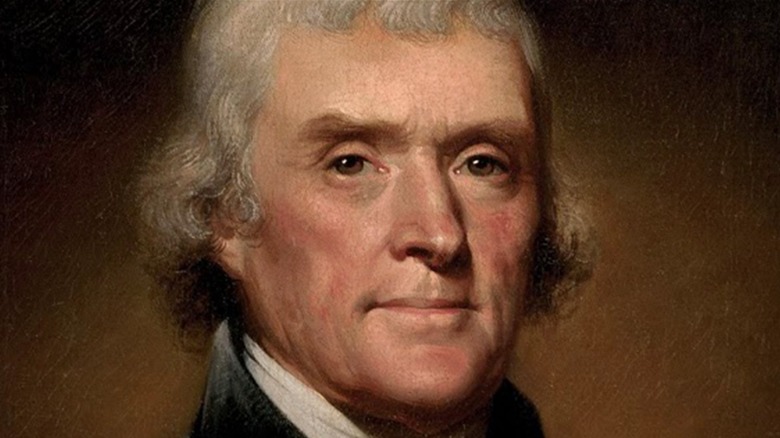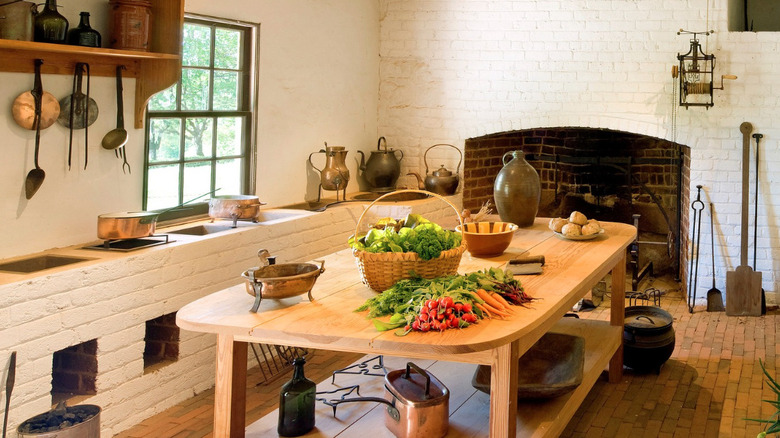Thomas Jefferson's Dinner Guests Were Supposedly Horrified To See Him Eat A Tomato
Students and historians are familiar with Thomas Jefferson's monumental legacy. Most people know that Jefferson was a central figure in acquiring the Louisiana Purchase and the primary author of the Declaration of Independence. The contradictions of his character are equally familiar: While Jefferson professed a commitment to liberty, he also kept hundreds of enslaved persons on his Virginia plantation.
Less well-known is Jefferson's pivotal role in forming American palates. He was instrumental in introducing French tastes to the nation and made a study of French grapes and wine-making. On one of his trips, Jefferson even brought along his slave James Hemings so that he could learn the art of French cuisine in exchange for his freedom. Jefferson's plantation itself was home to a wide variety of plant species, many of which Jefferson introduced and cultivated.
Our third president was also a grand host who enjoyed wining and dining on his estate. They say that one day, he decided to shock and impress his assembled guests by eating a raw tomato in front of their very eyes. Peggy Cornett, Curator of Plants at Thomas Jefferson's Monticello, explained it this way to WBUR: "The legend goes that he was standing on the steps trying to entice people to grow this unusual vegetable, I guess in Lynchburg. So he ate it and didn't keel over and die or have any other bad effects." Tomatoes are part of the nightshade family, which includes some highly toxic members — like mandrake and nightshade. It is thought that some of Jefferson's contemporaries may have believed tomatoes could also be deadly.
The truth in fiction regarding Jefferson's tomato
It makes for a great headline: Founding Father Boldly Bares Teeth to Tomato — and Lives to Tell the Tale! The only thing is, it may not be true. The story is certainly memorable; but, like the notion that tomatoes are poisonous, it doesn't look like it has a solid basis in fact. The story has been attributed to other historical figures as well (like Robert Gibbon Johnson), but it's not clear that this ever happened to Jefferson. It's also not clear that tomato eating would have impressed most colonists in the 1700s as a dangerous stunt, though it might have in other times.
Whether or not the tomato tale is true, it is rooted in real facts: Jefferson was an innovative, experimental gardener and an early advocate for both eating and growing this New World plant. As Monticello puts it, "We can say with certainty that Thomas Jefferson both cultivated and ate tomatoes from 1809 until 1824 and quite possibly grew them as early as 1781."
Tomatoes weren't the only thing Jefferson helped Americans develop a taste for, either: He gets credit for encouraging American enthusiasm for vanilla, french fries, ice cream, and macaroni and cheese, too. That sounds like a legacy we can all get behind.

